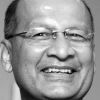Vishnu Prakash | Adieu Abe San! Japan loses a proud visionary, China a frenemy
A nationalist to the core, Abe San wanted Japan to be strong again and stand tall among the comity of nations

At the end of the day, it’s all about destiny! The grandson of Prime Minister Nobusuke Kishi, son of foreign minister Shintaro Abe, and a charismatic personality himself, Shinzo Abe was clearly destined to hold Japan’s highest office. And he did so with great distinction for over eight years, becoming his country’s longest-serving PM. But no one, not even his critics and opponents, could ever imagine (or wish) that he would meet such an end, at the hands of a mentally unstable former member of Japan’s maritime self-defence forces, who casually pumped two bullets into him at an election rally on July 8 at the ancient city of Nara.
Japan has a fringe group of radicals, including the notorious Yakuza (mafia-like transnational organised crime syndicates) and the far-right nationalists. Yet violence, leave alone political violence, is rather rare in this highly homogenous nation of 125 million people. That said, there have been isolated cases of attacks on national leaders, including his own grandfather Nobusuke Kishi and PM Takeo Miki (both survived). Between 1921 and 1932, three Prime Ministers were assassinated. Nonetheless, it is incomprehensible why Abe San was so targeted, from within, two years after demitting office, for his policies and beliefs.
A nationalist to the core, he wanted Japan to be strong again and stand tall among the comity of nations. He strove to revise his country’s pacifist Constitution (unsuccessfully), strengthen defence capabilities (especially to deter Chinese muscle flexing) as well as, enhance security cooperation with the United States and other nations (especially India). He did bring about a major change in 2015 by reinterpreting Article 9 of the Constitution to allow for limited collective self-defence, or aiding an ally under attack.
Shedding its traditional reticence, Japan also decided in 2015 to be a regular participant in the Malabar exercises along with India and the US. Tokyo stepped up joint military exercises with the US in the South China Sea. Defence spending was steadily increased, and could exceed the limit of one per cent of GDP soon.
An instinctive internationalist, he made friends with influential world leaders and had a visible presence at key regional and multilateral events. Under his watch, ties with Asean and Taiwan deepened, but deteriorated with the Koreas and China. It was partly due to history -- the alleged excesses by Japanese occupation forces during and prior to the Second World War. Japan has since apologised numerous times, but Seoul and Beijing have remained unimpressed. Like his predecessors, Abe tried to dilute the narrative of Japan’s role in its textbooks (rewriting history), which riled the neighbouring capitals.
The idea of the “Quad” was ingrained in Abe’s historic 2007 address to India’s Parliament when he eloquently outlined the vision of a “dynamic coupling” of the Pacific and Indian Oceans, or the “Confluence of the Two Seas”. He mooted the idea of like-minded nations such as Japan, India, the US and Australia joining forces to form an “Arc of Freedom and Prosperity.”
He was among the earliest among world leaders to turn the spotlight on the growing common challenge posed by Chinese aggression and extra-territorial ambitions. “Abe’s legacy is a world better prepared to confront China,” Josh Rogin wrote in the Washington Post.
Both Shinzo Abe and Xi Jinping came to power in 2012 but met for the first time after two years in Beijing on the APEC summit’s margins. Ties were tense due to the regular intrusions of Chinese vessels into Japanese waters around the disputed Senkaku islands. Also Japan, conscious of its economic inter-dependence with China, made some positive overtures including tentatively endorsing President Xi’s BRI initiative. Japanese companies have invested over $130 billion in China, which also absorbs 22 per cent of Japanese exports.
Tensions did abate and ties appeared to stabilise. The Chinese President was invited on a state visit to Japan in April 2020, which of course had to be aborted due to the Covid-19 pandemic. China’s handling of the crisis inflamed passions in Japan like the rest of the world. Abe promptly set aside $2.2 billion to assist its factories in pulling out of China. Negative sentiment on China hardened with 71 per cent of Japanese viewing the country as a threat (in 2021), as against 63 per cent in 2020.
China was of course shocked at Abe San’s untimely demise. Its official reaction was measured. In his condolence message, President Xi Jinping sais Abe had made efforts to improve China-Japan relations during his tenure and contributed positively to this endeavour, and deeply regretted the Japanese leader’s sudden passing. But the Chinese social media’s reaction varied from sympathy to vitriol. China’s Global Times basically described him as right-wing conservative politician who left a mixed legacy. It particularly expressed concern about increasing public support in Japan for revising the Constitution, which was at the top of Shinzo Abe’s agenda.
Under Abe, Japan became a less diffident power -- coming to terms with the rapid rise of Chinese power and influence. He had to walk a tightrope between a China, with which Japan’s economy was deeply integrated, and an America more sharply confrontational with China. India’s former foreign secretary Shyam Saran felt he “managed this delicate act quite successfully”.
Japan and China have generally had a testy relationship in the preceding century. That is unlikely to change. Both sides will continue to jostle for an edge over the other while not allowing matters to go over the precipice. That said, the imprint of Shinzo Abe’s vision would have a lasting impact on Japanese policies. RIP Abe San!

